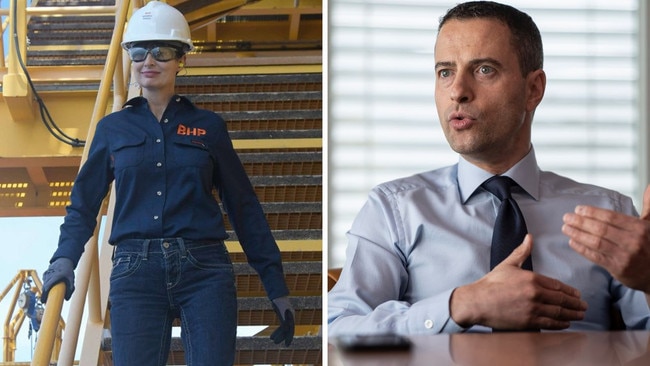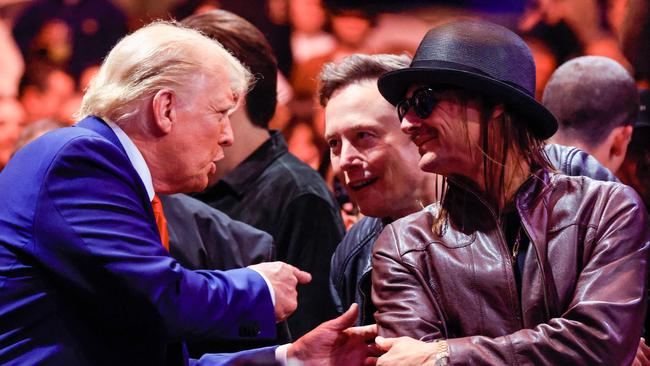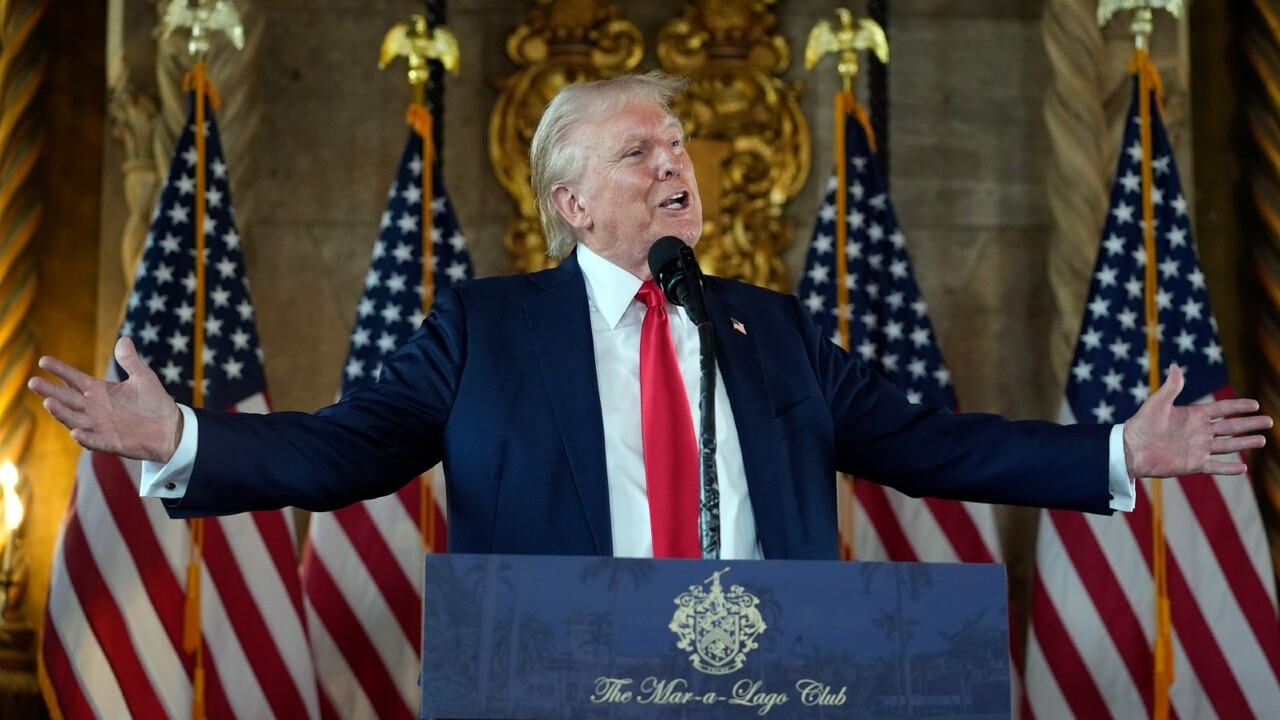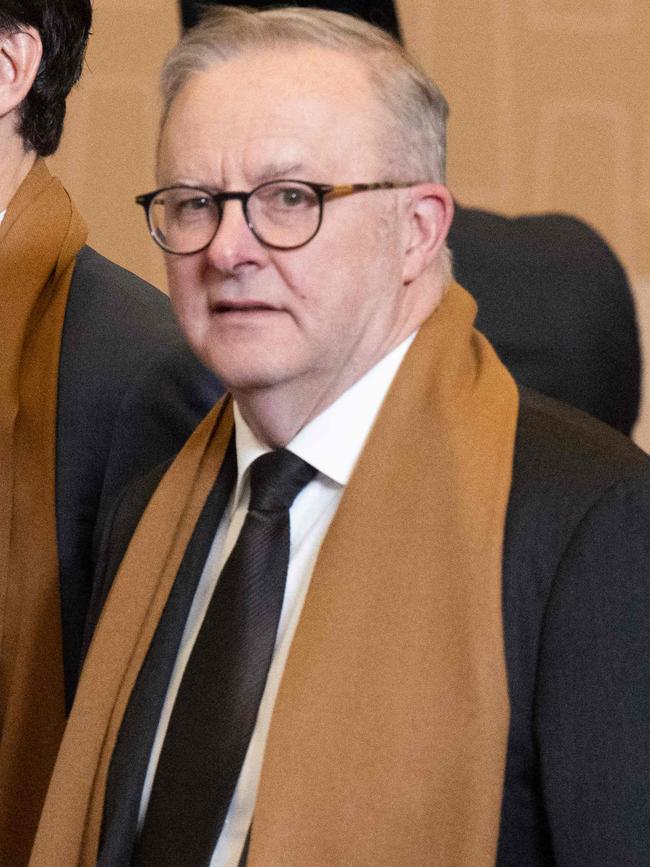Anthony Albanese urged to slow down transition from coal to renewables
One of the world’s major miners has urged Labor to slow down the transition from coal to renewables, as Donald Trump put in motion his plan to expand the fossil fuel sector in the US.

One of the world’s major miners has urged the Albanese government to slow down the transition from coal to renewables and warned Australia risked falling behind other nations in prioritising cheap energy, as Donald Trump put in motion his plan to expand the fossil fuel sector in the US.
The intervention from Glencore chief executive Gary Nagle comes as BHP president Geraldine Slattery delivers a pre-election plea for corporate leaders to publicly advocate for policies that would make Australian enterprise globally competitive, while big business issues a fresh attack on Labor’s industrial relations agenda.
“It is our job to speak out and contribute to fiscal and regulatory reform that will enable global competition,” Ms Slattery will tell the QUT Business Leaders’ Forum on Monday. “We need to be honest about the international benchmarks that show we have not been keeping up.”
As Mr Trump – who attended a UFC contest in New York on Sunday with Tesla boss Elon Musk – declared his administration would “drill baby, drill” to drive economic growth and nominated a fracking chief executive as his energy secretary, Mr Nagle said Australia’s attitude towards coal was becoming out of step with “the rest of the world”.

“Outside of Australia, stakeholders are generally more willing to have a conversation about coal,” Mr Nagle told The Australian. “They understand that the world has to advance and needs energy today as we continue to build renewables.
“The transition is not going to happen overnight and many countries have accepted coal as a shorter term transition fuel.”
Tribeca Global Natural Resources Fund portfolio manager Ben Cleary said international investors were beginning to take a more nuanced position on environmental, social and governance standards.
“ESG has essentially come full circle in the past four years,” Mr Cleary said.
“From 1.0 and BlackRock and others saying they would divest all fossil holdings, to 2.0 which was focused more on transmission to now 3.0 which is more balanced and accepting that the clean energy transition will not happen overnight and common sense is required.”
The Australian Energy Markets Operator has forecast all of Australian coal power stations are expected to have been mothballed by 2037, as the nation works towards a net-zero emissions economy by 2050.
The Coalition has flagged going to next year’s election vowing to extend the life of coal-fired power stations while also expanding gas until nuclear reactors can be brought online, although Peter Dutton has not released details of how this would work.
Despite claims Australia was out of step with other nations on the transition, a report released in October by the International Energy Agency showed global investment in green energy projects was on track to reach $US2 trillion a year – “almost double the combined amount spent on new oil, gas and coal supply”.
A spokeswoman for Climate Change Minister Chris Bowen said the government was “delivering an orderly and responsible transition that the former Coalition government failed to do”. “The Albanese government is acting in the national economic interest by seeking to take advantage of the global energy transition and capitalise on our abundant renewable resources, from our sun and wind to our critical minerals and Aussie know-how,” the spokeswoman said.
Mr Trump on the weekend nominated oil and gas magnate Chris Wright as energy secretary, tasking him with cutting red tape and driving a new era of US prosperity. Mr Wright, the founder of fracking giant Liberty Energy, last year declared there was “no climate crisis”, denied the world was in the midst of an energy transition and rejected claims that climate change was contributing to major weather events.

He described as “destructive deceptions” the terms climate crisis, energy transition, carbon pollution, clean energy and dirty energy.
While acknowledging burning fossil fuels was contributing to global warming, Mr Wright said any downsides from this had been outweighed by the wealth created from the sector.
“Since the end of World War II, global human life expectancy, wealth, health and opportunity have surged like never before. Hence any negative impact from climate change were clearly overwhelmed of the benefits of increasing energy consumption,” Mr Wright said in a video posted to LinkedIn.
The appointment of Mr Wright came ahead of world leaders talking up the need to take action on climate change at APEC and the UN climate summit in Azerbaijan, with the Albanese government on the weekend committing $125m to support Pacific nations transitioning to renewables.
While Mr Trump is expected to pull out of the Paris Agreement, Australia will need to set a new 2035 emissions reduction target by next year, with both the Coalition and Labor refusing to outline their plans before the election due in May. Mr Albanese on Sunday said Australia’s energy transition could be bolstered if the incoming Trump administration walked away from incentives for green investment.

“When there is a change, sometimes an opportunity comes as well. And one of the things we have seen is considerable capital flow to the United States as a direct result of the policies that have been in place,” the Prime Minister said.
“Now if those policies changes then obviously the economics change of investment and incentives and attractiveness.”
With corporate leaders increasingly critical of the Albanese government, Business Council of Australia chief executive Bran Black took aim at Workplace Relations Minister Murray Watt for linking the body’s backing of enterprise agreements with the government’s multi-employer bargaining laws.
In a speech at an Australian Workers’ Union conference last week, Senator Watt gave workers the impression the BCA was in favour of collective bargaining by quoting the employer group’s backing of enterprise agreements in a report released in 2021.
Mr Black said it was “entirely incorrect to link the BCA’s 2021 position on enterprise bargaining with support for the government’s recent industrial relations changes”.
“This approach is bad for workers, businesses and the economy,” Mr Black said.
“Employers should not be forced to bargain with unions when there’s no evidence that it’s what their employees want.
“The government’s changes will bring industrial disputes back to the Pilbara – a region which has delivered high paying jobs with good conditions, largely through direct negotiations between businesses and their employees.”
A spokesman for Senator Watt denied he took the BCA out of context. “The minister was clearly referencing the BCA’s stated position on enterprise agreements, not the government’s changes to workplace laws,” the spokesman said. “There are 10,406 federal enterprise agreements that are current, including many in the mining industry. It is unfortunate that some business groups continue to run scare campaigns about the government’s position and its laws, rather than deal with the facts.”

To join the conversation, please log in. Don't have an account? Register
Join the conversation, you are commenting as Logout